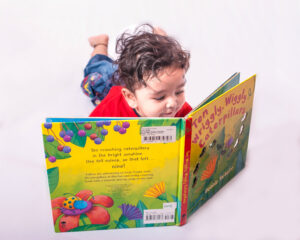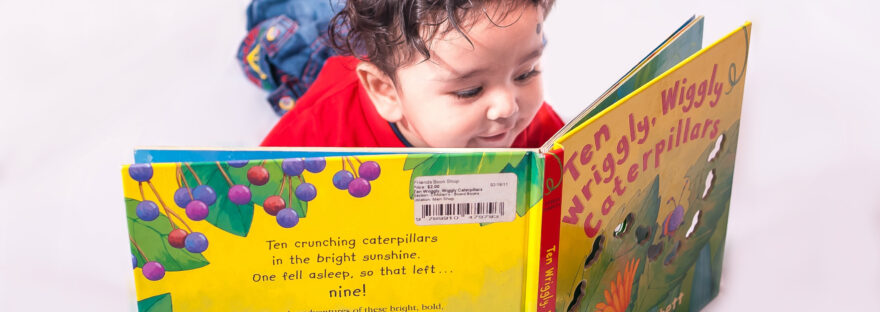My daughter was born in the hot summer months that were quickly followed by the monsoon downpour. With limited options of taking her outdoors, I did what I thought was best for her development: read. I didn’t always read a children’s book, more often it was a book I was reading myself. I fondly recall the days of her being in the ring sling, and I reading Andre Agassi’s “Open” to her. It also become the best tool for engaging her during tummy time. She didn’t understand much, but I knew my voice, the colorful pictures, varied textures of books, and exposure to sounds of different words not used in everyday speech, was laying the groundwork for her development. Unfortunately, reading out loud to kids, especially babies, is not given the importance that is required.
Did you know that reading from day one with your child actually sets the foundation for successful language development in school? While reading is generally looked upon as a favorable hobby once a child is in school, why is not the same importance given to it when a parent is reading out loud to the child?
Reading, , is one of the best bonding activities that one can do with their child. There is no right time to start; you can start as soon as you have settled down into a routine with the baby. A baby gets comfort by hearing a parent’s voice, so use reading out loud as an opportunity to build on this connection. According to the American Academy of Pediatrics, reading regularly with kids from an early age, strengthens the parent-child bond and this in turn leads to better brain development and language skills.
Common questions or remarks new parents face when reading to their child I range from “does your child understand what you are saying?” to “Why are you making your baby study from now?” Reading out loud is neither studying, nor is it important for your baby to understand everything, their coos and nodding to your change in vocal expression is more than sufficient. Research shows that there is additional brain activity, especially in areas that process visual association, even when a child is just listening to a story.
Apart from parents, those who support the family in the upbringing of the child can also read. Exposure to different narrations of the same story stimulates developing senses and also builds listening skills. The foundation for success in school, where all of this is expected and not always taught or given a chance to develop, starts with reading out loud. Also, reading offers more opportunity for language development than simply speaking to a child as there is also exposure to more sophisticated vocabulary.
Reading is also a great way to introduce concepts of colors, numbers, science, etc. as it provides context. When debating what is better between flashcards and reading a story, think about how much a child learns while just looking at a picture of a balloon on a flashcard or seeing it in a story, where the balloon is flying in the air. Reading is an excellent way of building imagination skills as well. I often get a nice chuckle while watching my daughter acting out scenes from a story saying sentences she often hears in her books during pretend play.
Furthermore, being in India, we have access to stories in multiple languages. Local publishers such as Tulika books and Pratham have fantastic stories, set in Indian context, that are bilingual. So reading in one’s mother tongue is also a possibility.
So reading doesn’t begin when the child goes of to school, reading should be a part of every child’s development from the beginning. Reading is beneficial at any age, but the sooner, the better.
By Swara Vyas Ahluwalia

